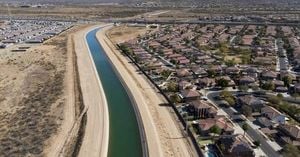Turkish politics has rarely been short on drama, but the events of Saturday, September 13, 2025, have added a new chapter to the country’s turbulent political saga. Authorities in Istanbul detained Hasan Mutlu, the mayor of the city’s Bayrampaşa district, along with 47 municipal officials, in a sweeping corruption probe that has sent ripples through the nation’s political landscape. According to state broadcaster TRT Haber and the state-run Anadolu Agency, the charges against Mutlu and his team include bribery, embezzlement, fraud, and bid rigging—serious accusations that, if proven, could upend careers and reshape local governance.
The Istanbul police did not hold back in their efforts. In a coordinated operation, officers raided 72 separate locations, seizing documents and detaining several deputies alongside Mutlu. The Istanbul chief prosecutor’s office ordered the detentions as part of an investigation into alleged extortion and other financial crimes committed by the Bayrampaşa municipality. These details, reported by outlets including TRT Haber and the Associated Press, underscore the scale and seriousness of the operation.
Hasan Mutlu, however, was quick to push back against the accusations. Taking to X (formerly Twitter) on the day of his arrest, Mutlu declared, “I have only served Bayrampaşa and you, my esteemed fellow citizens… What has happened consists of political operations and baseless slander.” He went further, assuring residents, “Be assured that, together with you, the valued residents of Bayrampaşa, we will overcome these slanders and these acts of dishonesty.” His denial was unequivocal, and he positioned himself as a victim of political targeting rather than a perpetrator of corruption.
This latest round of arrests is not an isolated incident. Over the past several months, more than a dozen mayors from the main opposition Republican People’s Party (CHP)—including Istanbul’s high-profile mayor and party leader, Ekrem İmamoğlu—have been arrested on similar corruption charges. According to The Guardian and the Associated Press, hundreds of municipal officials affiliated with the CHP have also faced detention or investigation, painting a picture of a broad and escalating crackdown on Turkey’s primary opposition force.
Ekrem İmamoğlu’s case has been especially prominent. Widely regarded as President Recep Tayyip Erdoğan’s main rival in any forthcoming presidential election, İmamoğlu was arrested in March 2025. His detention did not go unnoticed; it sparked widespread protests across Turkey, with thousands taking to the streets in Istanbul and beyond to voice their outrage. The charges against İmamoğlu center on allegations that he forged a university degree—a claim he firmly denies. Prosecutors are seeking a prison sentence of up to eight years and nine months, as well as a ban on his participation in political activities. His trial began on Friday, September 12, 2025, and the next hearing is scheduled for October.
The timing and scope of these arrests have fueled suspicions and accusations from the CHP. Party officials argue that these legal actions are not about rooting out corruption but about weakening the opposition and clearing the way for Erdoğan to extend his rule. As reported by The Guardian, the CHP claims the crackdown is part of a government effort to “crush the opposition and clear the way for Erdoğan to extend his rule, possibly through early elections before 2028.” The party’s leadership has been vocal in its criticism, suggesting that the government is weaponizing the judiciary to sideline political adversaries and consolidate power.
The government, for its part, has firmly rejected these claims. Officials insist that Turkey’s courts act independently and that the legal proceedings against opposition figures are based on evidence, not politics. As noted by the Associated Press, the government’s stance is clear: the judiciary is autonomous, and the rule of law prevails, regardless of political affiliations.
This tension between the CHP and the ruling government comes at a particularly sensitive time. In last year’s local elections, the CHP made significant gains, holding onto key cities like Istanbul and Ankara while also making inroads into traditional strongholds of Erdoğan’s AK Party. These victories were seen as a major setback for the ruling party and a sign that the opposition was gaining momentum. The subsequent wave of arrests has been viewed by many observers as a reaction to these electoral successes, raising questions about the health of Turkish democracy and the future of political competition in the country.
Adding another layer of uncertainty is a critical court case scheduled for Monday, September 15, 2025. An Ankara civil court is set to rule on whether to annul the CHP’s 2023 party congress—a decision that could dramatically reshape the party’s leadership and deepen internal divisions just as the opposition seeks to regroup ahead of future elections. If the congress is annulled, the party could be thrown into disarray, potentially weakening its ability to challenge the government in the near term.
For ordinary Turks, these developments are both alarming and exhausting. The country has witnessed repeated cycles of political tension, legal battles, and public protests over the past decade. The current crackdown, coming on the heels of the CHP’s electoral gains, has reignited debates about the independence of Turkey’s judiciary, the boundaries of political competition, and the prospects for genuine pluralism in the country’s political system.
International observers are watching closely as well. Turkey, a NATO member and a key player in regional geopolitics, has long been under scrutiny for its record on democratic norms and the rule of law. The arrest of high-profile opposition figures, especially those with strong public support like İmamoğlu and Mutlu, is likely to draw criticism from human rights organizations and Western governments concerned about the direction of Turkish democracy.
As the legal process unfolds, all eyes will be on the courts and the streets. Will the judiciary uphold the charges against these opposition figures, or will the cases collapse under public scrutiny and political pressure? Will the CHP survive its internal challenges and continue to pose a credible threat to Erdoğan’s rule? Or will the government’s crackdown succeed in sidelining its most formidable opponents, paving the way for another term in office?
Whatever the outcome, the events of September 2025 have already left their mark on Turkey’s political landscape. The fate of Hasan Mutlu, Ekrem İmamoğlu, and the broader opposition movement now hangs in the balance, with implications that could reverberate far beyond the borders of Istanbul or even Turkey itself.




